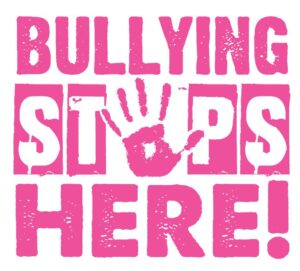Bullying & Harassment: Another form of Domestic Violence?
February 26th was known as Pink Shirt Day, the day in which we wore pink shirts to raise awareness and combat bullying. Bullying is often discussed in the context of schools and social media, however, we should not forget that bullying can also be a major problem in familial relationships. It is widely understood that children who bully others are often emulating behaviour experienced in the home. If you are a role model for a child, whether a parent, relative or family friend, take this Pink Shirt Day to introspectively evaluate your personal relationships and how they are affecting your mental health and those around you.

Assessing the power dynamics in your own relationship and determining if your partner is bullying you can be very challenging. While your partner may demonstrate obvious red flags such as insulting you or demanding to know your whereabouts and who you are with at all times, bullying can be much more subversive and inflicted either consciously or subconsciously.
So when assessing your own relationships, keep these red flags in mind:
Crying
All partners are going to have disagreements occasionally. How you communicate and overcome these disagreements however can point to a power imbalance or bullying in your relationship. If your partner always cries when faced with a disagreement, consider whether this behaviour is being utilized to disarm you or give in to their demands. If you are trying to communicate and reach a compromise but your partner is crying to make you feel guilty or unreasonable, this behaviour is manipulative and demonstrative of an unequal power balance.
Blocking
Relationships are about compromise and there needs to be a balance of partners’ needs and desires. All parties need to feel supported and safe in the relationship in order for there to be a healthy balance. If you find your attempts to communicate your needs and desires are repeatedly met with challenges or “What about my needs?” this may be a sign of an unhealthy relationship. If your partner is refusing to acknowledge a concern in your relationship or a deficit in their own behaviour, you need to evaluate your communication and whether your partner is treating you fairly.
Constantly requiring change
Partners should challenge each other to become the best versions of themselves, but this does not mean you need to change everything about yourself to meet your partner’s ideals. Perhaps your partner wants you to lose weight or pay more attention to your appearance. Carefully evaluate these requests and your partner’s reasoning to determine whether they are genuinely encouraging you towards self-improvement or are attempting to make themselves feel more confident or secure in the relationship. If your best interests aren’t at the centre of these request your partner may be bullying you into changes you do not necessarily need or want.
The Blame Game
Do you often feel blamed for circumstances both in and out of your control? Does your partner constantly bring up perceived grievances and how you are accountable? Perhaps you forgot to pick up groceries, dinner was late, or your cleaning does not meet your partner’s expectations. If your partner is consistently voicing what you are doing “wrong” but is not willing to acknowledge their own downfalls or assist you, this may be your partner attempting to absolve themselves of responsibility or lack of contribution to the partnership. The blame game can be insidious and slowly deprive you of your self-esteem and self-worth and make you feel as if you alone are blameworthy. Pay attention to how your partner communicates perceived grievances and if they are open to participating in their resolution.
The Isolation of Tasks
Each partner will have their strengths and weaknesses. Perhaps you are better with organization and coordinating familial and social obligations whereas your partner is better at finances or practical repairs. Be careful to ensure that each partner is using their strengths to benefit the family unit rather than exclude you from certain tasks or areas of life. For example, family finances are often a point of contention for partners due to one partner taking control of the finances and the other relying on their partner’s good judgment and skill. While it may be easier to rely on a partner to make these decisions, relinquishing all participation can lead to you becoming dependent and feel controlled. Remember- two heads is always better than one, so appreciate your partner’s skills and learn from them rather than rely on them exclusively.
At the end of the day, a partnership consists of individuals working together towards a common goal. The way you work together may be shaped by unique social, religious, or cultural ideals but a healthy partnership is one in which you feel secure and supported. Not all abuse or bullying is physical, it may be small continuous attempts to offset the power balance in your relationship and make you feel subservient or dependant upon your partner.

Many resources are available to you and your family in the Calgary area if you feel that your partnership needs help or you need to leave an unhealthy relationship. 24-hour support is always available through the Distress Centre Calgary at DistressCentre.com or (403) 266-4357.
If you need support in a legal context, contact Roxanne Seekins or call her at (403) 723-0175. As West Legal’s Family Law lawyer, Roxanne offers free 1-hour consultations if you need to discuss your legal rights and obligations arising from your relationship.

